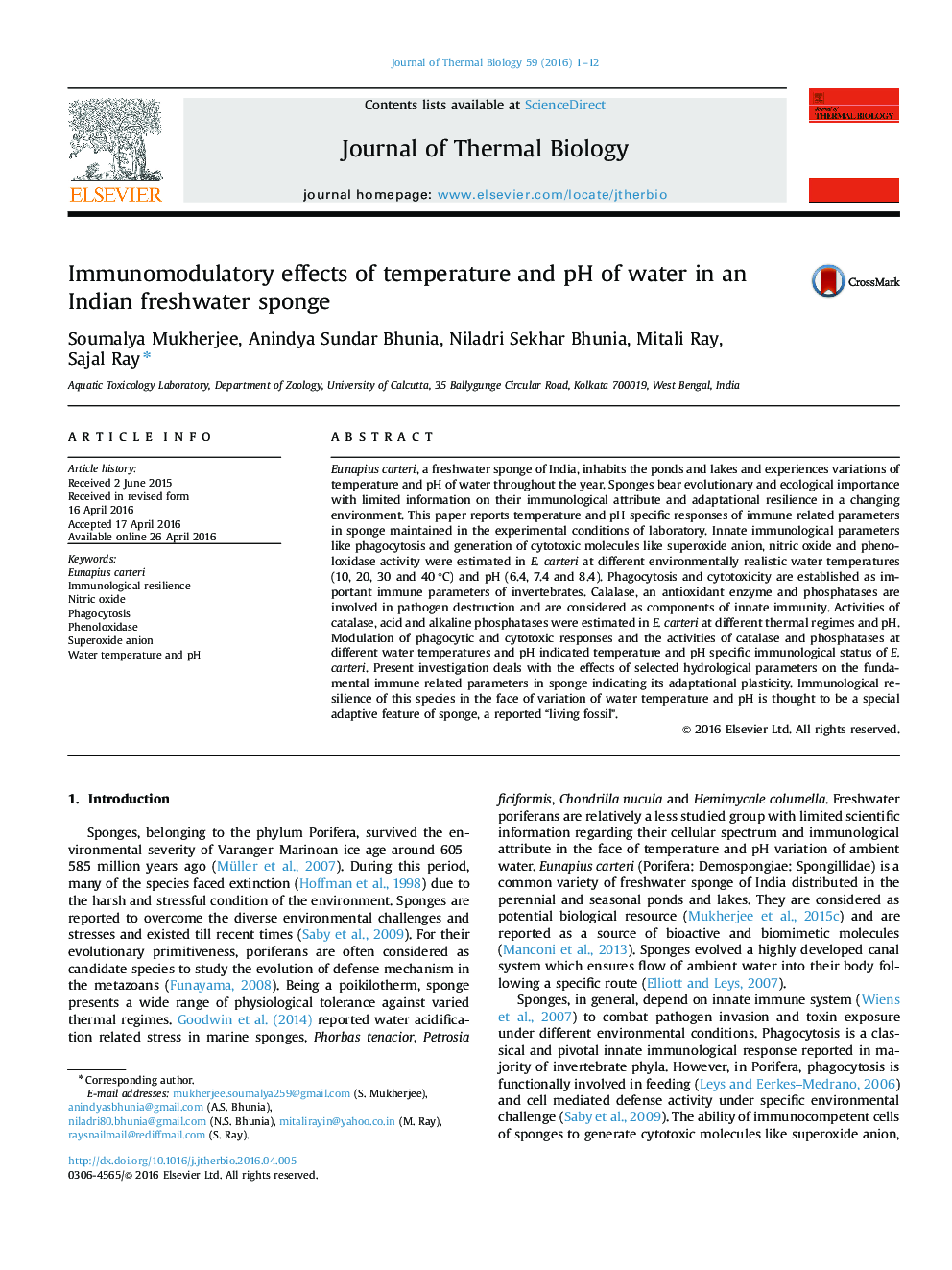| Article ID | Journal | Published Year | Pages | File Type |
|---|---|---|---|---|
| 2842671 | Journal of Thermal Biology | 2016 | 12 Pages |
•First report of temperature and pH mediated immunomodulation in sponge.•Strong phagocytic response of cells was recorded at 30, 40 °C for 4, 6 h.•Water temperature and pH modulated generation of cytotoxic molecules in sponge.•Temperature and pH presented variation in activities of catalase and phosphatases.•Result indicated the immunological resilience of sponge in a changing environment.
Eunapius carteri, a freshwater sponge of India, inhabits the ponds and lakes and experiences variations of temperature and pH of water throughout the year. Sponges bear evolutionary and ecological importance with limited information on their immunological attribute and adaptational resilience in a changing environment. This paper reports temperature and pH specific responses of immune related parameters in sponge maintained in the experimental conditions of laboratory. Innate immunological parameters like phagocytosis and generation of cytotoxic molecules like superoxide anion, nitric oxide and phenoloxidase activity were estimated in E. carteri at different environmentally realistic water temperatures (10, 20, 30 and 40 °C) and pH (6.4, 7.4 and 8.4). Phagocytosis and cytotoxicity are established as important immune parameters of invertebrates. Calalase, an antioxidant enzyme and phosphatases are involved in pathogen destruction and are considered as components of innate immunity. Activities of catalase, acid and alkaline phosphatases were estimated in E. carteri at different thermal regimes and pH. Modulation of phagocytic and cytotoxic responses and the activities of catalase and phosphatases at different water temperatures and pH indicated temperature and pH specific immunological status of E. carteri. Present investigation deals with the effects of selected hydrological parameters on the fundamental immune related parameters in sponge indicating its adaptational plasticity. Immunological resilience of this species in the face of variation of water temperature and pH is thought to be a special adaptive feature of sponge, a reported “living fossil”.
